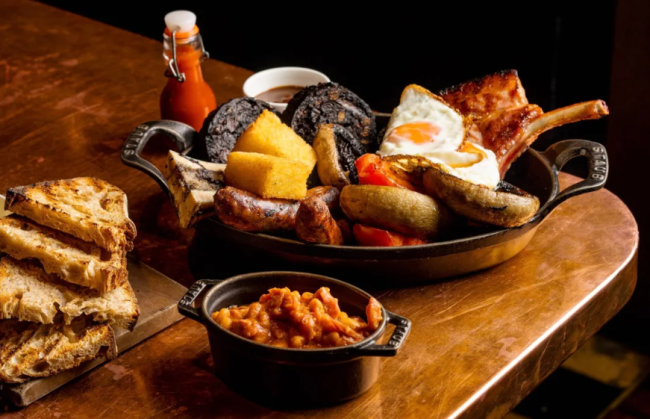The Full English – A Culinary Symbol of Britain

The iconic Full English breakfast has long been a source of pride and debate among Britons. This hearty meal, typically consisting of fried eggs, bacon, sausages, baked beans, grilled tomatoes, mushrooms and toast. It has become synonymous with English cuisine.
The origins of the Full English can be traced back to the 17th century, when agricultural workers needed a substantial meal to fuel their labor-intensive days. The dish’s popularity grew throughout the industrial revolution, providing a convenient and filling option for working-class families.

While the Full English remains a beloved tradition for many, it has also become a subject of controversy. Critics argue that the meal is unhealthy and contributes to obesity and other health problems. However, defenders of the Full English point to its cultural significance and the comfort it provides.

The Full English continues to be a popular choice for breakfast in Britain, with variations served in pubs, cafes, and hotels across the country. Whether it’s a beloved tradition or a dietary indulgence, the Full English remains a defining feature of British culture.
